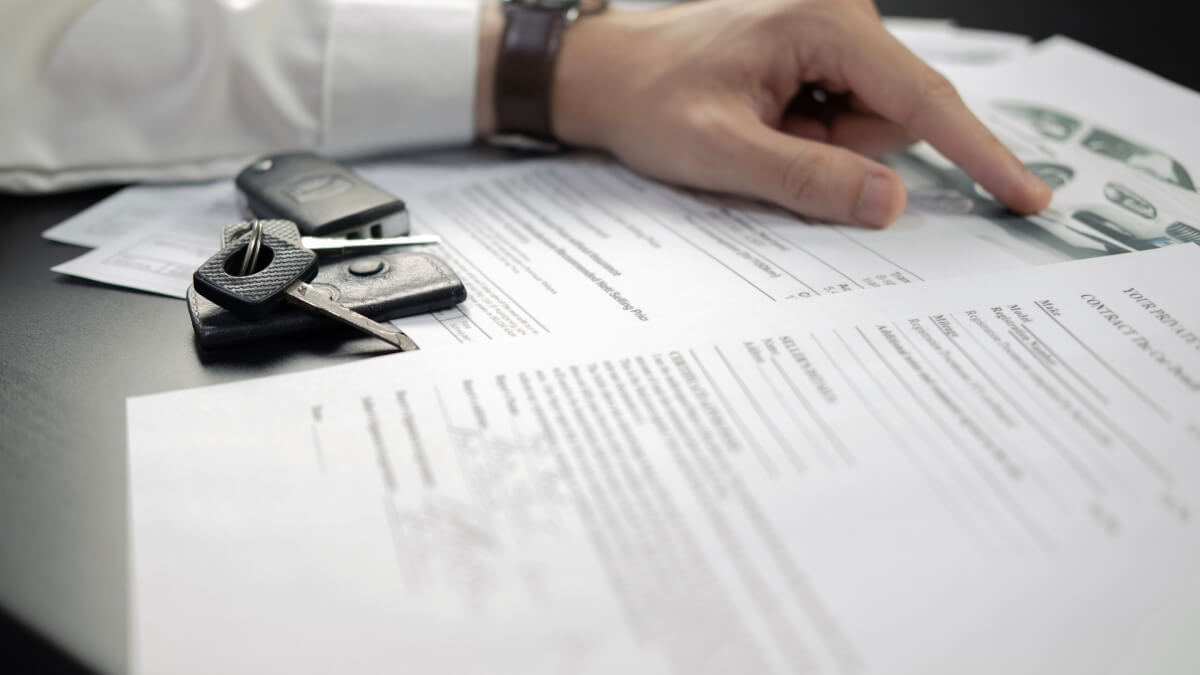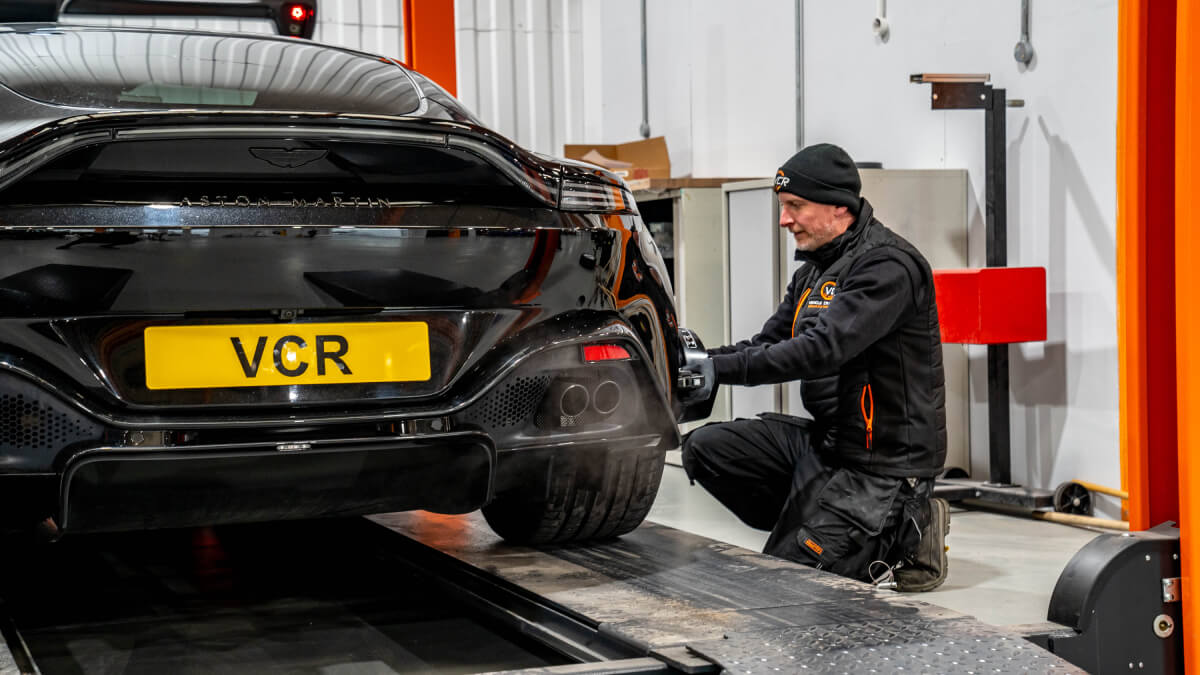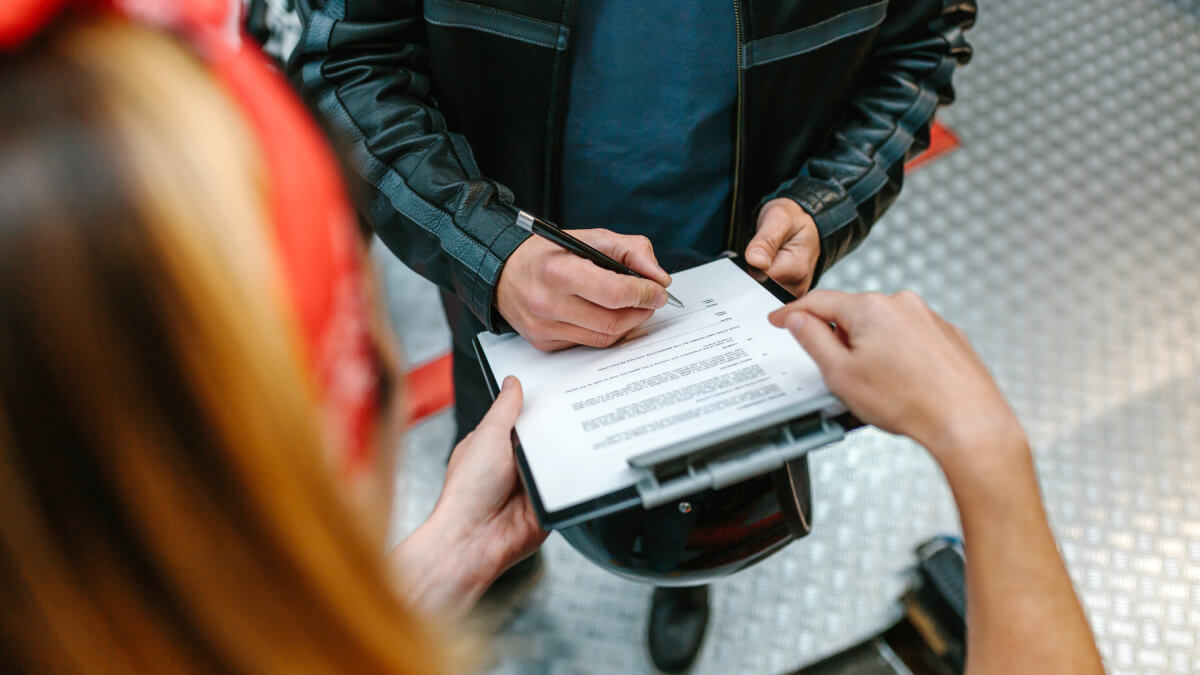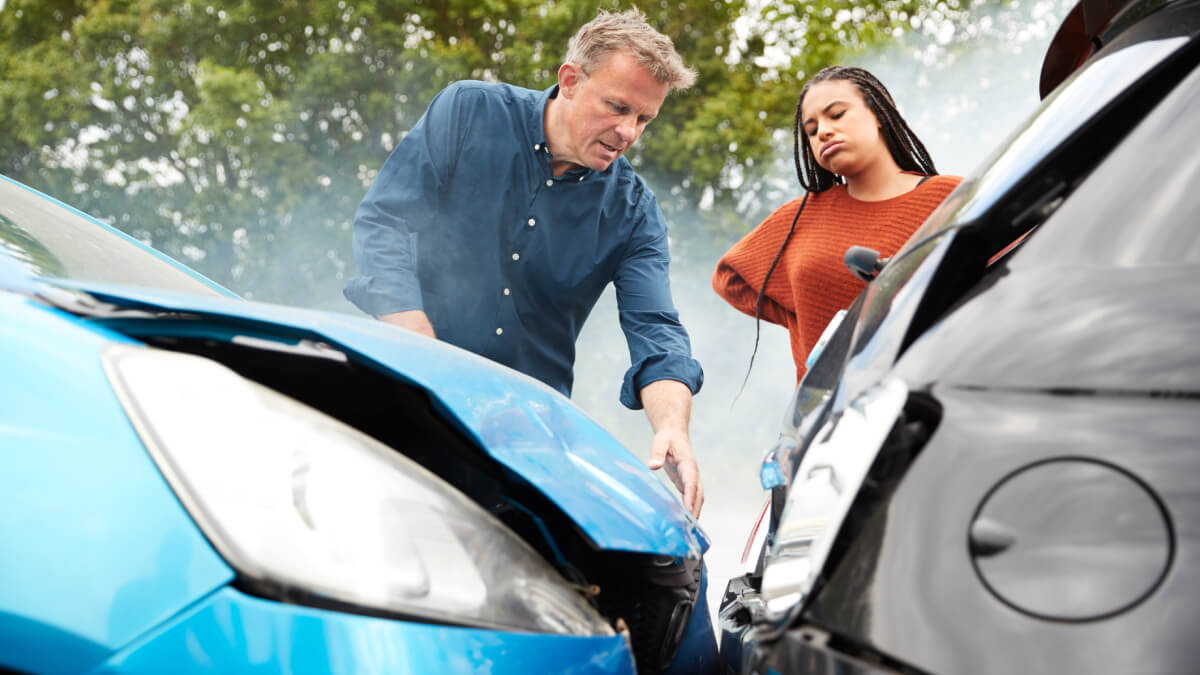Last year, insurers paid out £9.9 bn in motor insurance claims – the highest annual figure since the Association of British Insurers began collecting this data back in 2013. On top of this, the UK’s number of road traffic accidents reached an all-time high in the most recent annual report, with a staggering 333,296 incidents. Despite these alarming trends, a significant number of our customers still have no idea how to make a car insurance claim. So, in this article, we’ll make sure you’re prepared for any potential mishaps on the road by walking you through everything you need to know about car insurance claims. We’ve been providing insurance-approved crash repairs in Milton Keynes for over a decade, so our team are expertly placed to guide you through the claims process.
Step-By-Step Guide: How To Make A Car Insurance Claim
No matter how big or small, accidents on the road can often be overwhelming. There’s a lot to think about in a short sapce of time, so preparing yourself in advance is always a good idea. If you’ve been involved in an accident, it’s important to deal with the immediate aftermath before considering your insurance claim. To better understand the steps to take straight after an accident, check out our
The first thing you’ll need to consider following a road accident is whether it’s even worth making a claim on your insurance. While insurance is there to protect you and other motorists from unforeseen costs, it doesn’t always make the most financial sense to make a claim. Unfortunately, any accident, whether you report it or not, will likely affect your premium. That means you’ll probably pay more for insurance in the future, even if the accident wasn’t your fault. The only exception may be if you’ve had to claim on your windscreen or lost keys, as these are often regarded as separate from your main policy, but it will depend on your insurer’s terms. Any driving event moulds your risk profile, so even if you don’t make a claim, insurers will think you’re more likely to be involved in another incident further down the line. With that in mind, these are the three things you should consider before making a claim: The longer you drive without making a claim on your insurance, the bigger your no claims discount will be on your premium. Insurance providers don’t have to offer a no claims discount, but most do. So, before you make a claim, calculate how much more money you might save on future policies if you cover the cost of the damage this time. Usually, the more you increase your voluntary excess, the cheaper your premium. That means if you agree to contribute more of your money towards a claim, the total cost of your policy will be reduced. If your voluntary excess is high, your repair costs may be less than the amount you’d be contributing to the claim. Therefore, you’d lose your no claims discount, worsen your risk profile, and receive no financial benefit. Even with our streamlined insurance-approved repairs, the claims process can be extensive and complicated. For many, filing a claim might not be worth the time and effort. The purpose of an excess is to deter people from making lots of claims for minimal damage, as insurance is supposed to protect you from major financial setbacks. Nearly all insurance policies come with two types of excess- compulsory and voluntary. This is a fixed amount set by your insurer that you are required to pay in the event of a claim. The figure is likely to vary depending on the typical factors that impact your premium, such as driving experience, age, previous accidents, and the type of car. This is added to the compulsory excess, but you can choose how much voluntary excess you pay. By increasing your voluntary excess, you may be able to bring your premium down, so it’s worth calculating how much of a contribution makes the most financial sense. All insurers work differently, so you may be asked to pay the excess upfront or get a bill for it when the claim is being paid. You’ll need to pay the excess, regardless of who’s to blame for the accident. However, if it’s proved that the accident was the other person’s fault and the total cost is recovered from their insurer, you may be able to recover this amount. Hopefully, you’ll never have to make a claim on your car insurance, but it’s important to know the steps to take just in case. Here’s how to best react to an accident to ensure your claims process goes smoothly, starting with the immediate aftermath. Your insurance claim timeline can vary significantly depending on a number of factors. However, a typical insurance claim usually ranges from a few days to several months. These are a few of the things that might impact the speed of processing your claim: While you might not be able to directly influence your insurer’s processes, there are some steps you can take to ensure the process runs as smoothly as possible: Now that you’ve got all the information you need to handle car insurance claims, you can get behind the wheel with confidence every time. Remember, not every accident requires an insurance claim, and often, it’s more cost-effective to cover the cost of your repairs yourself. If you’re in need of car body repairs in Milton Keynes, don’t hesitate to get in touch with vehicle Crash Repairs. At our insurance-approved body shop, we’ve helped countless motorists make a stress-free return to the road following an accident. Whether you’re making a claim with your insurance or not, we’ll provide a courtesy car for the full length of your repairs so you can continue your daily routine while we get your vehicle back up and running. Get your free quote today and find out why we’re one of the most trusted repair centres in Milton Keynes.
Is It Worth Claiming On Insurance?

When Do You Pay Excess On Car Insurance Claims?
Compulsory Excess
Voluntary Excess

How To Claim On Car Insurance
At The Scene
After The Accident:

How Long Does A Car Insurance Claim Take?

Take To The Road With Confidence


